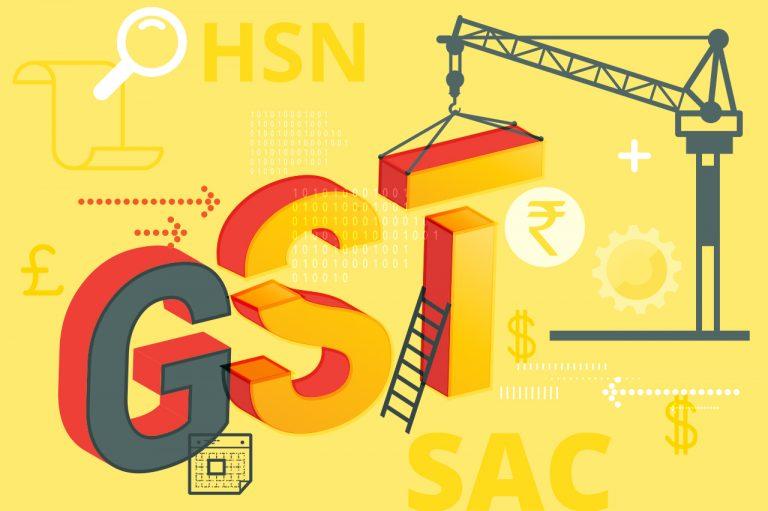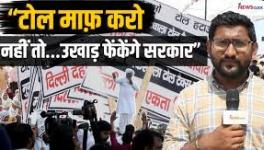Modi Regime’s Stand on GST is a Savage Attack on Federalism

On 28 August, three states made it clear that they were turning down Union Finance Minister Nirmala Sitharaman’s proposal in respect of Goods and Services Tax (GST) compensation for states. Delhi, Kerala and Punjab rejected the two options outlined even before they received the finance ministry’s detailed brief because both of them entailed taking on further debt.
Creaking under the corruption, mismanagement and maladministration, and often much worse, of the current regime in almost all arenas of governance, the country is also witnessing a breakdown of federal relations in its entirety. The GST imbroglio highlights the systematic subversion of the Modi regime of financial and fiscal federalism.
At the 41st GST council meeting, held virtually on 27 August, Sitharaman introduced a note prepared by Advocate General KK Venugopal which contained the proposal that states should borrow from the Reserve Bank of India the expected shortfall in GST compensation amounting to Rs.2,35,000 crore (Rs. 2.35 trillion). Two schemes were proposed: one, states could borrow Rs.97,000 crore, which the Centre calls a shortfall on account of “GST implementation”, or the entire amount. Without citing any statistics or calculations, the Modi regime unilaterally claims that the rest of the amount, Rs.1,38,000 crore (Rs.1.38 trillion), has been caused by the Covid-19 crisis, which is tantamount to an act of providence; the Centre, therefore, has no obligation to fork up as agreed.
The 101st amendment to the Constitution of 2016, on the basis of which the GST regime was rolled out in July 2017, further enabling legislation and agreements reached were clear on the point that the Centre had the responsible until 2022 of compensating states for revenues surrendered, whatever the GST collections amounted to, factoring in a year-on-year rise of 14% calculated with 2016-17 as a base year. Thus the imposition of a compensation cess.
It is not just that Sitharaman’s attempt to ditch her government’s obligation is illegal and in bad faith, the added problem is that the manner in which she tried to do it at last Thursday’s meeting revealed patently the Modi regime’s mala fide intentions in that Venugopal’s note was not circulated to the states in advance so that it could be properly discussed and that it was introduced towards the end of the meeting so that any informed discussion was effectively guillotined.
P Chidambaram, Congress leader and former Union finance minister, has counselled states to reject the proposal. The other state governments not run by the Bharatiya Janata Party (BJP) have all but said they will reject the proposal containing the fine print, which has finally been circulated. It is not impossible, however, that some BJP governments will also convey their displeasure, even if they do not push the envelope. The BJP’s Sushil Modi, Deputy Chief Minister and Finance Minister of Bihar, has already said that the Centre is morally, if not legally, obliged to compensate the states, though he dialled back on the rhetoric on 29 August. It would not be an exaggeration to describe the GST issue as a crisis which the Centre will find it difficult to bulldoze itself out of without everyone involved having to pay a big price.
Let’s look at the background. In the field of fiscal and financial federalism alone, the current regime has used the BJP’s solid Lok Sabha majority to steam-roll the states. They are doing all the work involved in dealing with the pandemic, while the Centre, led by Modi, sermonises, tries to cover up its unleavened incompetence and dreams up meaningless slogans and symbolic programmes. Many states have been hit by natural disasters, for which the Centre’s assistance has been uneven and motivated by purely partisan considerations.
West Bengal, for instance, was hit by Cyclone Amphan in April. Parts of the state now face flooding due to heavy rains. Assam and Bihar have been dealing with grim flood situations that are complicating its pandemic programmes. The loosening of the drawstrings of the exchequer has, however, been selective, raising serious concerns about the federal project.
The damage caused by Amphan has been estimated at over Rs.1 lakh crore (Rs.1 trillion) by the West Bengal government. In the immediate aftermath of the super-cyclone, the Centre had released Rs.1,000 crore in advance assistance, which amounts to 1% of the damage. Since then, West Bengal has received precisely zilch from the Centre. This is quite apart from the fact that the Centre owes the West Bengal government Rs.53,000 crore, including Rs.4,135 in GST compensation. None of this is forthcoming. I am citing the West Bengal case because Chief Minister Mamata Banerjee keeps reminding the Centre of the dues, having done so as recently as on 11 August at a video-conference with Modi. Assam was granted Rs.346 crore in July, as it should have been, with the promise of more funds if more proposals were sent.
It is in this context that we must see a renewed attempt at Opposition unity in the shape of a video-conference on 26 August, a day before the GST Council meeting, between interim Congress president Sonia Gandhi and seven non-BJP chief ministers – Bhupesh Baghel (Chhattisgarh), Hemant Soren (Jharkhand), Uddhav Thackeray (Maharashtra), V Narayanasamy (Puducherry), Amarinder Singh (Punjab), Ashok Gehlot (Rajasthan) and Banerjee.
The issues flagged went beyond political bias in discharging financial obligations and providing assistance and included: the use by the Centre of central agencies to harass political opponents; conspiracy to topple state governments; and attempts to impose an ideological hegemony. Though Banerjee and Thackeray were the most vocal, there was a general consensus at the meeting that federalism and the multi-party system would not survive unless a platform was created for collective action. Sonia Gandhi was asked to take the lead in building such a platform.
This is all the more necessary because a number of regional forces opposed, or supposed to be opposed, to the BJP seem to be missing in action or intent upon self-destruction. In the Hindi heartland, the Samajwadi Party and Bahujan Samaj Party seem barely to figure either in the national Opposition space or in Uttar Pradesh, where CM Yogi Adityanath’s odiously predatory police regime flourishes in the absence of any pushback. It was reported in July that according to the Uttar Pradesh government itself, 6,237 encounters were staged by the police and 122 people had been gunned down since Adityanath formed a government in March 2017.
In Bihar, where Assembly elections are due in a couple of months, Rashtriya Janata Dal (RJD) patriarch Lalu Prasad’s insistence on keeping son Tejashwi Yadav in the forefront of an Opposition alliance, whatever shape it ultimately takes, is helping the National Democratic Alliance, even though the Nitish Kumar-led government’s mishandling of the pandemic allied to the bungling on a distinctly more colossal scale by the BJP government in Delhi has generated a backlash. An important ally has left and a number of leaders, including some MLCs, have crossed over from the RJD to the Janata Dal (United).
The current regime’s project of undermining the federal structure is of a piece with its attacks on the Opposition, its subversion of institutions, especially the higher judiciary, its utter disregard of constitutional norms and its attempt to institute a theocratic police state.
In this critical conjuncture, the Congress, the only oppositional national party, has the huge responsibility of shaking itself out of its fugue and leading the charge against this authoritarian regime. At present, Opposition parties must seize the GST issue to come together. The fly in the ointment is the Congress’s steadfast refusal to put its house in order and repurpose itself for this task.
The author is a freelance journalist and researcher. The views are personal
Get the latest reports & analysis with people's perspective on Protests, movements & deep analytical videos, discussions of the current affairs in your Telegram app. Subscribe to NewsClick's Telegram channel & get Real-Time updates on stories, as they get published on our website.
























